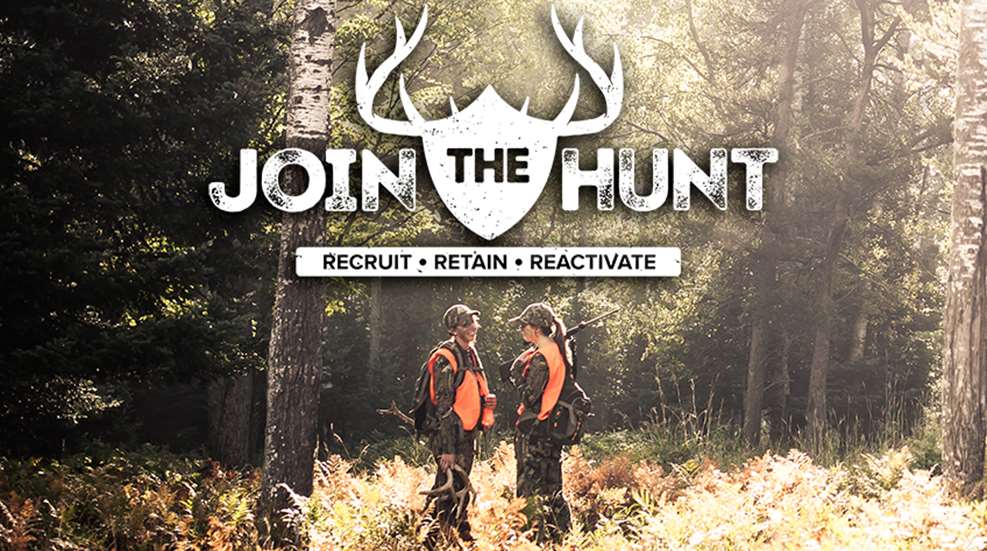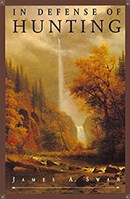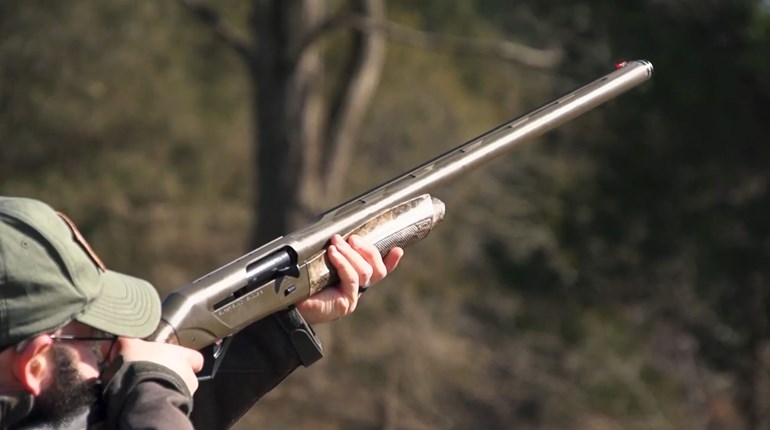
When asked why they stop hunting, some hunters may say they don’t have time, or they have trouble finding access. Non-hunters may respond similarly to questions of why they don’t hunt. There’s another reason. According to Penn State psychologist Simon Bronner, 56 percent of hunters say that they have been confronted by anti-hunters.
I hunt. I’m also a psychologist who’s taught psychology at four major universities and four smaller grad schools. I’ve been a counselor and run a holistic health center, and have written two books about hunting psychology. If people challenge me about hunting, I ask them some questions.
If you look in the mirror, what do you see? Notice that your eyes are on the front of your face, like all predators and omnivores. The eyes of herbivores are on the sides of their face so they can watch for those who could eat them. In their bestselling book The Paleolithic Prescription, authors Boyd Eaton, M.D., Majorie Shostak and Melvin Konner, M.D., Ph.D., conclude that we could only have evolved to become Homo sapiens by eating meat, which helps explain why the Paleo Diet is so popular. So, we are built to be hunters.
What’s the healthiest diet for you? Vegetarians get a lot of press, but only about 3.5 percent of Americans are vegetarians and less than .5 percent are vegans. Those who choose a vegetarian diet for health reasons are making their own health-based decision. However, if they chose a vegetarian diet based on guilty feelings about killing animals or false beliefs that hunters are causing species to go extinct, this may ultimately be a projection of an inner conflict.
Psychologist Dr. Hal Herzog reports that 84 percent of vegetarians and 70 percent of vegans return to eating at least some meat. Herzog found that 35 percent of the vegetarians said declining health was the main reason they returned to eating meat. You can always buy organic meat at the store, but there’s definitely something very important to taking from the wild some of the meat or fish you eat. It reminds you of your place in the food chain, and who you really are. And for many people, venison may be cheaper than beef.
Psychoanalyst Marie Louise von Franz writes: “Living means murdering from morning to evening; we eat plants and animals … plants suffer … so vegetarians cannot have the illusion that they do not share in the wheel of destruction. We are murderers and cannot live without murdering. The whole of nature is based on murder.”
Mark Damien Duda at Responsive Management adds that one dietary change in recent years is that more people say they value the healthy food of wild game as they are locavores.
Getting outdoors in nature is good for you, but is hunting different than just taking a walk in the woods? Studying the motivations of hunters, Dr. Steven Kellert, a professor of social ecology at the Yale School of Forestry & Environmental Studies, found that most hunters say they hunt because they enjoy being outdoors, regardless if they get something or not. Hunting, however, is different than just walking as you’re carrying a weapon and have the potential to kill wild game.
"You can always buy organic meat at the store, but there’s definitely something very important to taking from the wild some of the meat or fish you eat. It reminds you of your place in the food chain, and who you really are."
In his highly acclaimed study of human aggression, The Anatomy of Human Destructiveness (1973), psychologist Erich Fromm wrote: “In the act of hunting, a man ... returns to the natural state, becomes one with the animal, and is freed from the burden of his existential split: to be part of nature and to transcend it by virtue of his consciousness. In stalking the animal he and the animal become equals, even though man eventually shows his superiority by use of his weapons.”
Sigmund Freud and Carl Jung both fished and hunted. In 1925 Jung went on safari in Africa. Inspired by his safari, Jung wrote: “Too much of the animal distorts civilized man, but too much civilization makes sick animals.”
The only major behavioral scientist who has written anything negative about hunting was Karl Menninger, M.D. Menninger did once write that “Sadism may take a socially acceptable form [such as deer hunting and deer stalking] and other varieties of so-called ‘sport.’” According to Menninger’s daughter, Connie, Karl was a hunter. One day he shot a deer but it didn’t die immediately. It ran off, became entangled in a fence and suffered until he could find and kill it. He felt guilty, so he started writing about hunting and sadism. Menninger’s friends challenged him. Confused, he went into therapy and realized his error. He later wrote in his book Sparks: “Freud fearlessly explored the unconscious layers of the personality, and disclosed the fact that it’s no more abnormal for a human to want to kill (in hunting) than it is for a cat to want to kill a mouse or a fox to kill a rabbit.”
Carl Jung also wrote that “Fanaticism always means overcompensated doubt.” People who don’t get outside often and depend on electronic media are likely to be anxious and fearful as the media constantly report environmental crises that we can do very little about. They may say they oppose all hunting, but in reality in the depths of their psyche, there’s a hunting instinct in all of us and those people might be projecting an inner conflict. That’s been identified by Dr. James Hillman, who was a student of Jung and founded Pacifica Graduate Institute (where I’ve taught). Hillman said a number of his patients came to him worried about dreams about angry animals chasing them. Hillman said that actually they were dreaming about how they were denying their animal instincts, which made them angry.
The research department of the American Psychological Association has told me that they are not aware of any scientific research studies that find hunters in general are prone to mental illness. In fact, the opposite is true.
In their best-selling book The Paleolithic Prescription (which started the Paleo Diet), Eaton, Shostak and Konner write: “Our ‘hunting instinct’ has gone awry in ‘civilized’ society, where the thrill of the chase and the kill are no longer part of our experience and there are no clear avenues of expression except, perhaps to our peril, in the streets and subways of today’s urban jungles.”
So, if you encounter someone who claims that ethical hunting is wrong, smile and nod, and maybe quote some of those I’ve mentioned. In doing so, you not only support hunting but you show how ethical hunters are heroes.
Enjoy your hunt!
 READ MORE
READ MORE
James A. Swan is the author of many books including Chasing the Hunter’s Dream (2007), The Sacred Art of Hunting (2000) and In Defense of Hunting (1994). The latter is an eloquent defense of hunting on moral, ecological and historical grounds, and has been called a “bridge of communication between hunters and anti-hunters.” For more information, visit jamesswan.com.




































